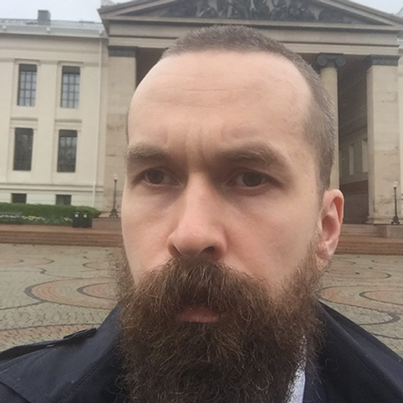We are getting closer now to the main STOICON 2021 conference, coming up on Saturday, October 9. If you don’t have your ticket for the event yet, you can click here to get it (the ticket price is any level of donation you’d like to make).
We’re continuing our tradition of publishing interviews with the Stoicon speakers, workshop providers, panelists, and organizers. That way people interested or planning to participate in Stoicon 2021 can get to know them a bit before the conference. This interview is with a good friend and colleague, someone I count myself fortunate to talk with weekly, Harald Kavli. (He’s not always as laconic as he is in this interview!)
To see the schedule for Stoicon, or to get your ticket for this event – donations for tickets support the continued work of Modern Stoicism, Ltd – click here and you will be taken to the Stoicon 2021 Eventbrite site.
We’re very happy to have you here. Please introduce yourself and your work to our readers.
I am Harald, and I am the assistant editor of Stoicism Today, the facilitator of Oslo Stoics and I study philosophy at the University of Oslo.
What first interested you in, or attracted you to Stoicism?
I was looking for information on philosophical counseling when I came across a blog entry about Stoicism, and I began reading about the Stoics—both secondary literature and the original sources—immediately after that. The first thing that attracted me to Stoicism was the idea that there is something going on between an event and a reaction to the event, for instance, someone stepping on my foot and my emotional reaction to that. This might seem like a trivial point, but it made me see that I have some sort of agency that is quite important to the way I experience the world.
How does Stoicism figure into your work?
As an assistant editor of Stoicism Today, I get a chance to work on submitted texts about Stoicism. I am also writing my thesis about the so-called sufficiency debate in antiquity, that is, whether virtue is sufficient for happiness. As of now, I am not sure if I want to pursue a career in academic philosophy, or whether it will be possible for me to do so, but I hope to bring Stoicism with me in whatever job I might get in the future.
How has Stoicism affected or improved the way you live your life?
It has probably made me less gloomy, less irritable and less antisocial. It has gotten me interested in philosophy and it has connected me to a bunch of people from around the world.
If you had to pick one, what would you say is the most important aspect of Stoicism?
That it is not simply about feeling better, but rather about being better. It is about functioning well as a rational and social being.
As an ancient philosophy, is Stoicism still just as useful and relevant in our late modern world?
While societies have changed quite a bit since antiquity, I think that there is core of the human experience which has remained the same. While it is true that the ancient ethicists had certain blind-spots, I don’t think that they are any less relevant now than they were back then, and I don’t think that modern ethics has made ancient ethics redundant in any way.
Do you have a favorite Stoic passage or quote? What is it, and why is it your favorite?
It’s hard to pick one, but this is certainly one of them:
Not to live as if you had endless years ahead of you. Death overshadows you. While you’re alive and able—be good. Marcus Aurelius, IV.17. (trans. Hays).
What role are you playing in the Stoicon conference?
I will be the moderator for the lightning talks round.
Are you excited for Stoicon 2021? Is it Stoic, or not, to be “excited”?
I am Scandinavian, so I don’t get excited. That being said, I do look forward to Stoicon, and I do think that Stoics can be excited.




